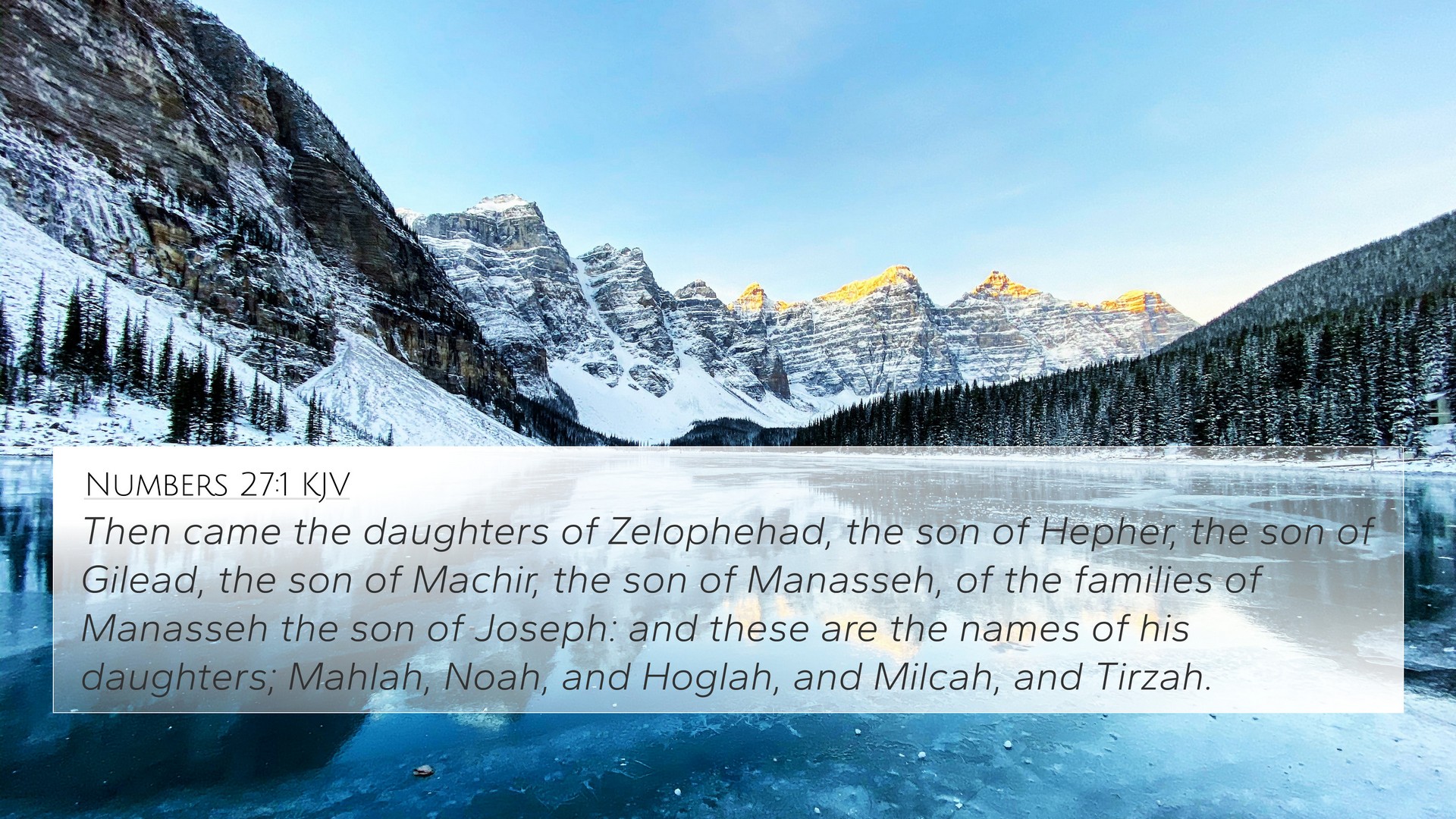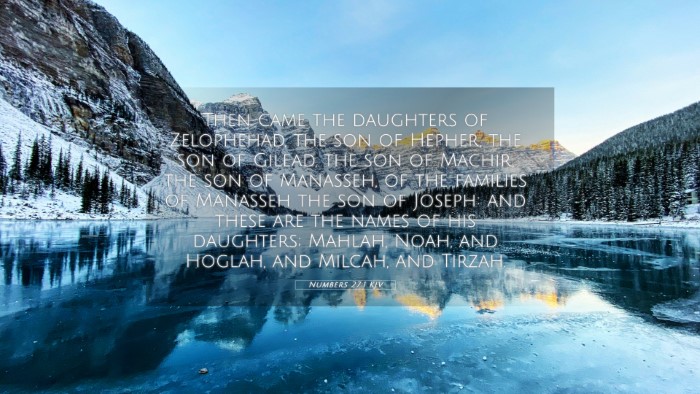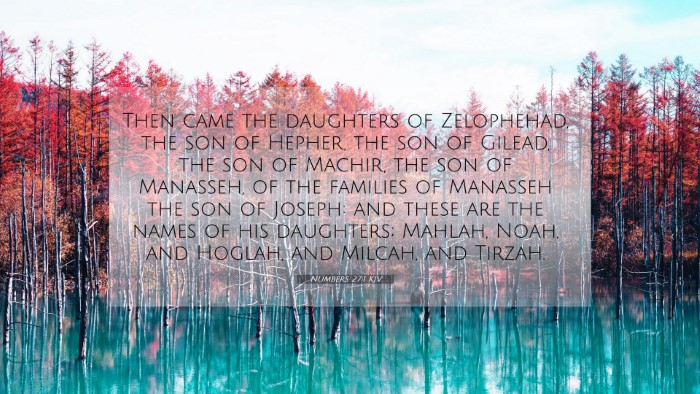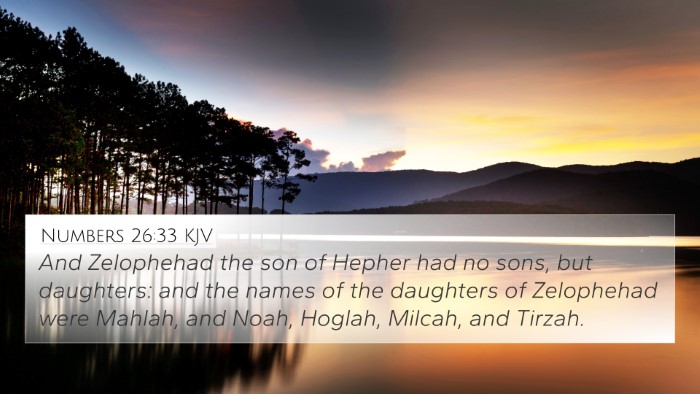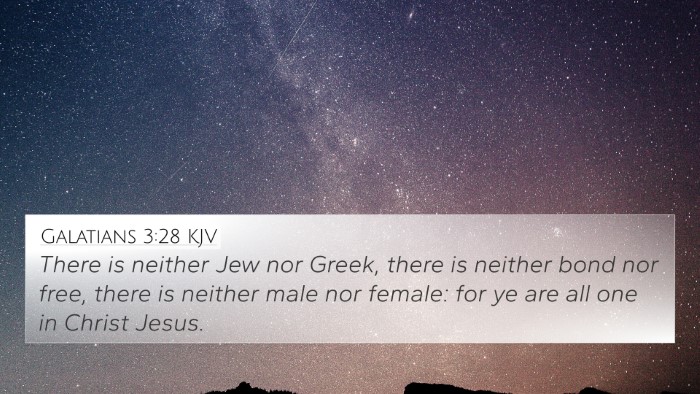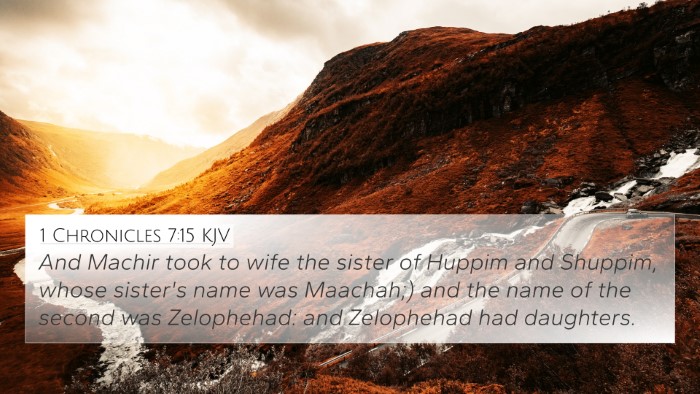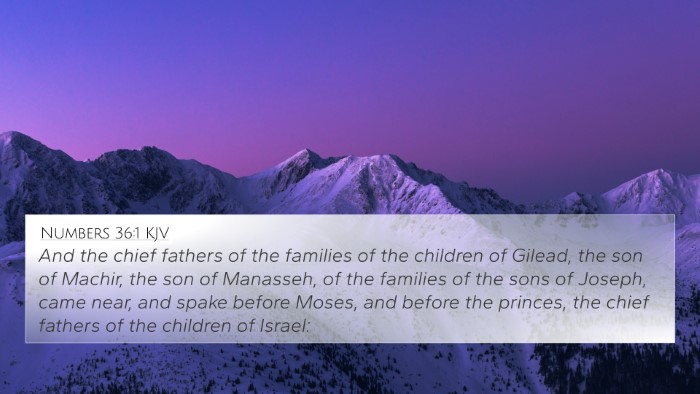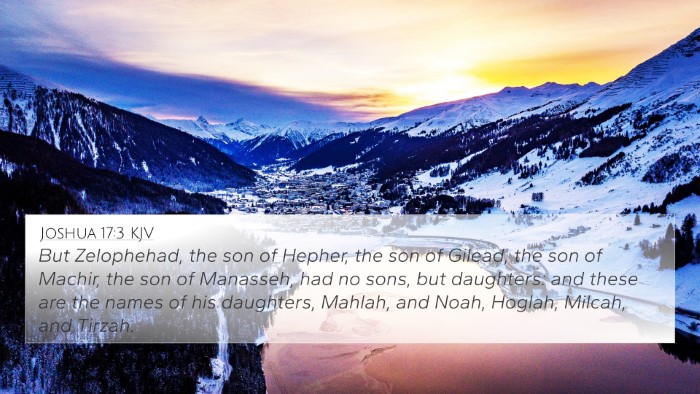Understanding Numbers 27:1
In Numbers 27:1, we encounter a significant moment in the narrative of the Israelites, focusing on the daughters of Zelophehad, who challenge societal norms regarding inheritance rights.
Verse Context
Numbers 27:1 states:
"Then came the daughters of Zelophehad, the son of Hepher, the son of Gilead, the son of Machir, the son of Manasseh, of the families of Manasseh the son of Joseph: and these are the names of his daughters; Mala, Noah, Hoglah, Milcah, and Tirzah."
Meaning and Insights
This verse underscores the bravery and boldness of these daughters as they approach Moses to request their right to inherit their father's property. Several commentaries provide insight into its implications:
-
Matthew Henry: He emphasizes the importance of the daughters' actions as a case of procedural justice, where they defy the norms of their time to claim their rightful inheritance. Henry notes that their appeal not only challenges traditional inheritance laws but also sets a precedent for future generations, illustrating the theme of divine justice and equality.
-
Albert Barnes: Barnes focuses on the representation of Zelophehad's daughters as symbols of faith and diligence. Their names being listed speaks to their significance and God's recognition of their struggle for justice. His commentary highlights that their story is a profound reminder of God’s attentiveness to individual needs and circumstances.
-
Adam Clarke: Clarke discusses the cultural context behind the daughters’ plea. He suggests their inheritance claim serves a dual purpose: affirming their identity within their father’s lineage while simultaneously addressing broader themes of hope and societal change regarding women’s roles in Israelite culture. Clarke also suggests that this story foreshadows the inclusion of marginalized voices in God’s covenantal promises.
Biblical Cross-References
This verse connects with several other biblical passages that resonate with its themes of justice, inheritance, and the role of women:
- Genesis 6:18 - Illustrating God's promise and Abraham's covenant.
- Deuteronomy 21:17 - Discussing the rights of firstborn sons, providing context for inheritance laws.
- Joshua 17:3-4 - Relating the inheritance of the daughters of Zelophehad to their brothers.
- Galatians 3:28 - Highlighting the equality of all believers in Christ, resonating with the daughters' request for equality.
- Ezekiel 46:16-18 - Discussing inheritance laws in Israel, which enriches the understanding of this theme.
- Matthew 19:29 - Jesus echoes the theme of reward for faithful service, relevant to the context of inheritance.
- 1 Peter 3:7 - Speaking to the worth and honor of women, which reflects the dignity sought by Zelophehad’s daughters.
Thematic Connections
This passage illustrates several significant themes in the Bible:
- Justice and Fairness: The progression of women's rights in biblical law signifies God’s evolving covenant.
- Inheritance and Identity: The emphasis on lineage and rightful claims illustrates the importance of family and heritage in Israel.
- Courage: The daughters' approach to Moses serves as an example of taking initiative for justice.
Cross-Referencing in Biblical Study
For those engaged in Bible cross-reference studies, here are some tools and methodologies that might enhance understanding:
- Bible Concordance: A valuable tool for locating cross-references quickly and efficiently.
- Bible Cross-Reference Guide: This offers thematic connections that can deepen one’s exploration of related verses.
- How to Use Bible Cross-References: Familiarity with different systems can help illuminate links between passages.
- Bible Chain References: Establish network links between verses, showing their interrelation.
User Intent Keywords
Visitors may find these categories of inquiry beneficial:
- What verses are related to Numbers 27:1?
- Find cross-references for the request of Zelophehad's daughters.
- How do Numbers 27:1 and Galatians 3:28 connect?
- Similarities between this request and other inheritance laws.
Conclusion
Numbers 27:1 serves as a powerful narrative of faith, justice, and the progression of social norms within biblical scripture. This analysis highlights its importance not just in the context of the Israelite inheritance laws but also as a timeless reminder of the value of equity and divine justice.
